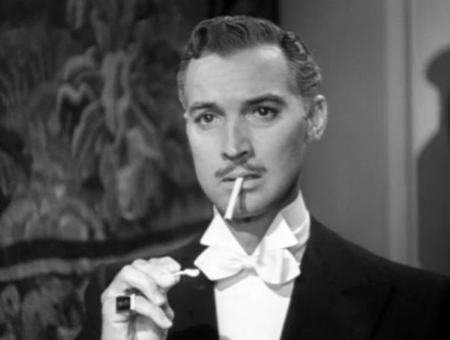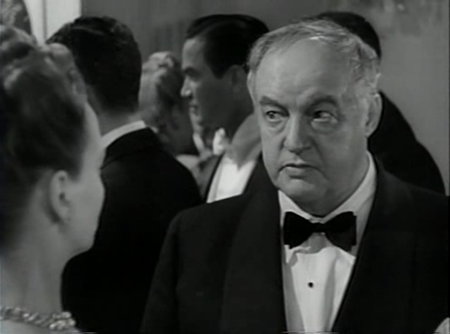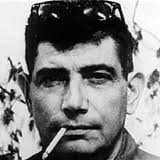Ruthless/1948/ Producing Artists/105 min.
“Ruthless” was recently released on Blu-ray by Olive Films.
The Czech-born émigré film director Edgar G. Ulmer, as noir as they come, was called the King of Poverty Row by some of his cultish admirers.
Pictures like Ulmer’s 1945 low-B film noir “Detour,” his 1939 African-American ultra-indie “Moon Over Harlem,” the 1951 low-fi sci-fi “The Man from Planet X” and the 1955 cheapo Western “The Naked Dawn” stretch the limits of cinematic ingenuity stimulated by minuscule budgets. In Ulmer’s undisputed masterpiece “Detour,” the director shows buildings lost in the night and fog – a spine-chilling effect – because there was no money for a street set.
“Ruthless,” by comparison, is a fairly lush production, with a multitude of richly detailed sets, high production values and a cast that ranks just below A-level. The film has that sense of impending evil and doom that also marked Ulmer’s 1934 Boris Karloff–Bela Lugosi horror classic “The Black Cat.” Even when “Ruthless” becomes absurd – as in the fervidly ludicrous climax – it’s always fun to watch.

Zachary Scott, the great film noir lounge lizard, here plays the ruthlessly successful financier Horace Woodruff Vendig.
Zachary Scott, the great film noir lounge lizard, here plays the ruthlessly successful financier Horace Woodruff Vendig who cheats, double-crosses and sleeps his way to the top, then shrugs it off when a one-time ally commits suicide. Louis Hayward is his often-abused and appropriately named best friend Vic Lambdin.
Sydney Greenstreet is Buck Mansfield, a fellow businessman and rival who’s not quite ruthless enough. Diana Lynn, double-cast, is the love (or loves) of Horace’s life. And that ace noir heavy of heavies Raymond Burr pops up as well. All this for a director who usually counted himself lucky if he got actors like Tom Neal and Ann Savage, the doomed couple in “Detour.”
Scott, a sometimes underrated actor (he was tremendous in both “Mildred Pierce” and in Jean Renoir’s “The Southerner”), manages to show the warmer, more seductive qualities beneath the ruthlessness of Vendig. Greenstreet seems miscast playing a guy named Buck. But he has a good time as the vengeful ex-tycoon, as does Diana Lynn (twice) and Burr, who can occasionally, though not here, seem like a second-string Greenstreet.
The subject of “Ruthless” is wealth, its hypocrisies and the price it ultimately exacts from the soul of the taker. The obvious inspiration for “Ruthless,” which was based on a novel by Dayton Stoddart (I know, I’ve never heard of him either), is the film of films, Orson Welles’ “Citizen Kane.” From Kane, Ulmer and his screenwriters borrow the multiple flashback structure, the deep-focus camera virtuosity, the theme of the sins behind great fortunes, the foil of the humanistic best friend (Hayward) and the main character with three names.
As for Ulmer – the low-rent auteur who persevered through often threadbare productions, including “Damaged Lives,” a low-budget 1933 cautionary drama about venereal disease – “Ruthless” must have made him feel as if he’d migrated temporarily from Poverty Row to Paradise. While “Ruthless” is not as good as “Detour,” it does show that Ulmer could have functioned very well, if the powers that be let him move more often to the right side of the tracks. (The rumor is that the director was banished to the likes of Producers Releasing Corp. and Eagle Lion because he’d seduced the wife of a major studio bigwig.)
But almost anybody can be better with better stuff and the one big advantage of working on Poverty Row is that you’re left alone if you can get it done on time and on (you’ll excuse the word) budget. Ulmer and his charmingly disreputable and penny-wise films will always be special treats to devotees of black and white Hollywood.
Now let’s go watch 1960’s “The Amazing Transparent Man.” I hear the reason the Man was transparent is that there was no money for another actor.













From FNB readers